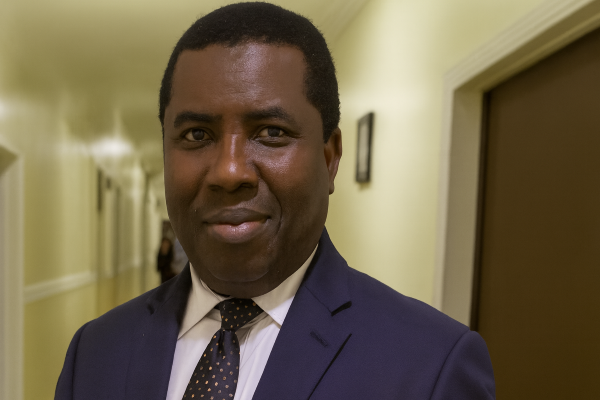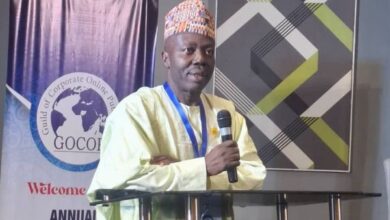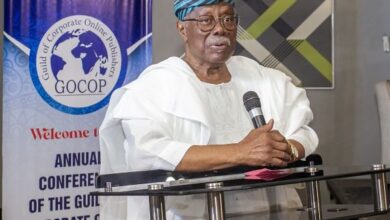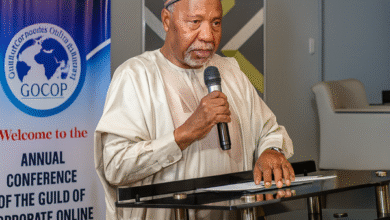
A Nation Awaits a New Dawn in Electoral Integrity
Nigeria stands once again at a critical democratic crossroads. The appointment of Professor Joash Ojo Amupitan (SAN) as the new Chairman of the Independent National Electoral Commission (INEC) has sparked widespread conversations about the direction of the country’s democracy and the future credibility of its elections.
With the National Council of State’s unanimous endorsement of President Bola Ahmed Tinubu’s nomination, expectations are high — and rightly so. For a nation whose elections have been plagued by credibility crises, technological setbacks, and voter apathy, this appointment could either mark a turning point or become another missed opportunity.
As Nigerians debate what lies ahead, one question looms large:
Can Prof. Joash Amupitan restore public faith in Nigeria’s electoral system and redefine the credibility of the ballot box?
A Scholar-Jurist Steps Into History
At 58, Prof. Joash Amupitan embodies the rare intersection of intellect, integrity, and institutional experience. Born in Ayetoro Gbede, Ijumu Local Government Area of Kogi State, he brings over three decades of academic, legal, and administrative pedigree to the nation’s most politically sensitive office.
A Professor of Law and Senior Advocate of Nigeria (SAN), Amupitan is currently the Deputy Vice-Chancellor (Administration) at the University of Jos and Pro-Chancellor and Governing Council Chairman of Joseph Ayo Babalola University (JABU). His academic journey — from LL.B. to Ph.D. at the University of Jos — reflects a lifetime of scholarship rooted in fairness, justice, and corporate accountability.
His areas of specialization — Company Law, Evidence Law, Corporate Governance, and Privatisation Law — suggest a mind trained to navigate complexity, ensure compliance, and uphold institutional integrity. These are the very principles Nigeria’s electoral system desperately needs.
From Yakubu to Amupitan: The Burden of Continuity and Change
Prof. Joash Amupitan succeeds Prof. Mahmood Yakubu, whose decade-long tenure from 2015 to 2025 was marked by both milestones and controversies. Under Yakubu, Nigeria introduced critical electoral innovations such as the Bimodal Voter Accreditation System (BVAS) and electronic result transmission, yet implementation challenges marred their impact.
The 2023 general elections, for instance, exposed glaring logistical weaknesses and eroded public trust. For Amupitan, the task is not just to defend INEC’s legacy — it is to rebuild its credibility from the ground up.
According to BRANDECONOMY analysts, Amupitan’s challenge is twofold:
- Institutional Trust — restoring citizens’ confidence in INEC’s neutrality and independence.
- Operational Integrity — ensuring that the Commission’s systems, technologies, and personnel deliver elections that are transparent, timely, and tamper-proof.
IPAC’s Verdict: “Restore Trust or Risk Apathy”
The Inter-Party Advisory Council (IPAC) has already issued its first call to action. In a statement by its Lagos Secretary, Mrs. Abiola Adeyemi, IPAC congratulated Prof. Amupitan but urged him to “enhance the integrity of elections and rebuild public confidence in the system.”
“Nigerians are disenchanted with the electoral process, hence the recurrent voter apathy,” Adeyemi said. “We expect the new INEC Chairman to strengthen reforms so that elections truly reflect the will of the people.”
She called on Amupitan to enforce electronic result transmission, curb vote-buying, and shield INEC from partisan interference. Her words echo a widespread public sentiment: Nigerians want transparency, not theatrics.
An Expert’s Blueprint for Reform
For Prof. Amupitan, reform cannot be rhetorical — it must be structural, legal, and cultural.
To deliver credible elections, he must tackle five critical fault lines:
- Legal Frameworks – Push for amendments to ensure full legal backing for electronic transmission of results, data transparency, and digital audit trails.
- Operational Capacity – Decentralize INEC’s decision-making, improve logistics, and reduce human bottlenecks in result collation.
- Institutional Independence – Rebuild INEC’s autonomy from political influence through strict compliance with constitutional provisions.
- Civic Education – Partner with civil society and media to rebuild voter confidence and combat misinformation.
- Technology and Trust – Strengthen cybersecurity and data integrity in electoral technologies to prevent manipulation.
BRANDECONOMY notes that Amupitan’s grounding in corporate governance could be a major asset here. His approach to evidence-based accountability and internal audit systems can help reform INEC’s bureaucratic culture — one that has too often been reactive rather than proactive.
Why Amupitan’s Appointment Resonates Beyond Politics
At first glance, an electoral appointment might seem like a purely political event. But in reality, INEC’s credibility directly influences Nigeria’s economic outlook.
Investors and global partners view electoral transparency as a proxy for political stability and policy predictability. When elections are credible, investor confidence rises, capital inflows increase, and governance improves.
“A transparent election cycle is not just a political gain — it’s an economic necessity,” says Dr. Tunde Agboola, BRANDECONOMY’s Governance and Policy Analyst. “Without political legitimacy, you cannot have fiscal credibility or sustainable economic growth.”
By appointing a law professor with a clean reputation, President Tinubu appears to be signalling a commitment to ethical leadership and institutional integrity — both key drivers of Nigeria’s democratic and economic development.
The Weight of Expectations
Amupitan’s appointment has drawn attention not only from politicians and academics but also from the global diplomatic community. Observers believe his success will depend on three immediate priorities:
- Rebuilding Internal Capacity: Ensuring that INEC’s field staff are competent, trained, and insulated from external pressure.
- Enhancing Transparency: Institutionalizing open-data election results and performance dashboards for real-time tracking.
- Restoring Citizen Trust: Engaging civil society, the media, and youth organizations to rebuild belief in the power of the vote.
If he can deliver measurable improvements in these areas before the next major election cycle, Amupitan will go down in history as one of INEC’s transformational leaders.
Ten Things to Know About Prof. Joash Amupitan
- Full Name: Professor Joash Ojo Amupitan (SAN).
- Age & Origin: 58 years old, from Ijumu LGA, Kogi State.
- Education: LL.B., LL.M., and Ph.D. in Law — all from the University of Jos.
- Career Start: Began as Assistant Lecturer in 1989, became Professor in 2008.
- Specialization: Corporate Governance, Evidence Law, Electoral Law, and Public Policy.
- Administrative Roles: Deputy Vice-Chancellor (Admin), University of Jos; Pro-Chancellor, JABU.
- Publications: Over 50 works on governance, legal reforms, and corporate law.
- Professional Affiliations: Member of NBA, NALT, and Council of Legal Education.
- Awards: Multiple commendations for transparency and academic leadership.
- Family: Married to Dr. (Mrs.) Yemisi Amupitan; blessed with four children.
BRANDECONOMY INSIGHT: The Future of Nigeria’s Ballot
Prof. Amupitan’s appointment comes at a pivotal time — one where democracy globally is being tested by disinformation, voter fatigue, and declining trust in institutions. For Nigeria, the stakes are even higher.
If the new INEC boss succeeds, he won’t just be remembered for conducting elections — he will be celebrated for restoring belief in the very foundation of Nigerian democracy.
But if the cycle of distrust, technical glitches, and post-election litigations continues, the implications will extend beyond politics — affecting investment sentiment, governance legitimacy, and citizen engagement for years to come.
Conclusion: Between Promise and Performance
As Prof. Joash Amupitan prepares to take office, Nigerians are watching with cautious optimism. His legal mind, ethical pedigree, and academic rigor could bring a new ethos to INEC — one grounded in transparency, law, and fairness.
The question, however, remains: Will Nigeria finally bridge the gap between electoral promises and democratic performance?
If Amupitan succeeds, it could mark the beginning of a new era where votes truly count, institutions command public trust, and democracy regains its moral authority.
For now, the nation waits — and hopes.











